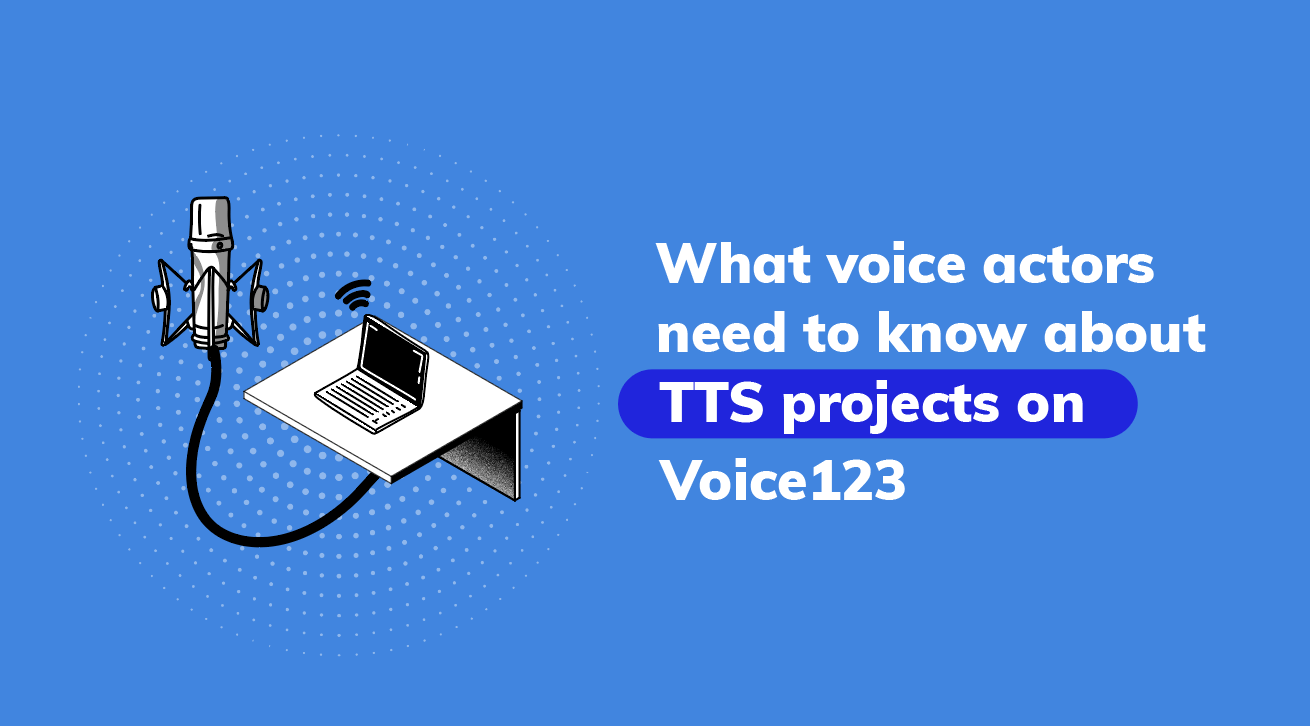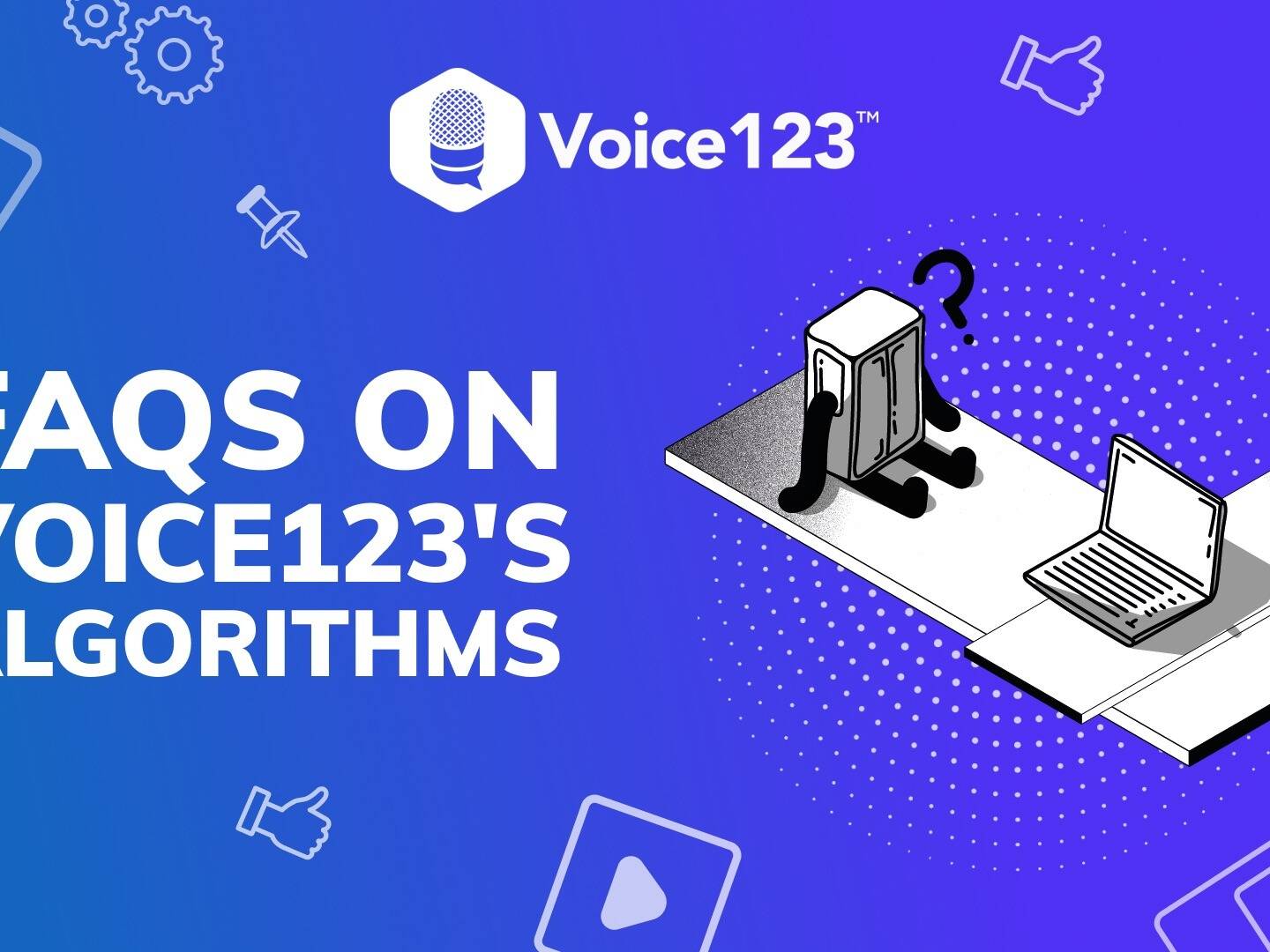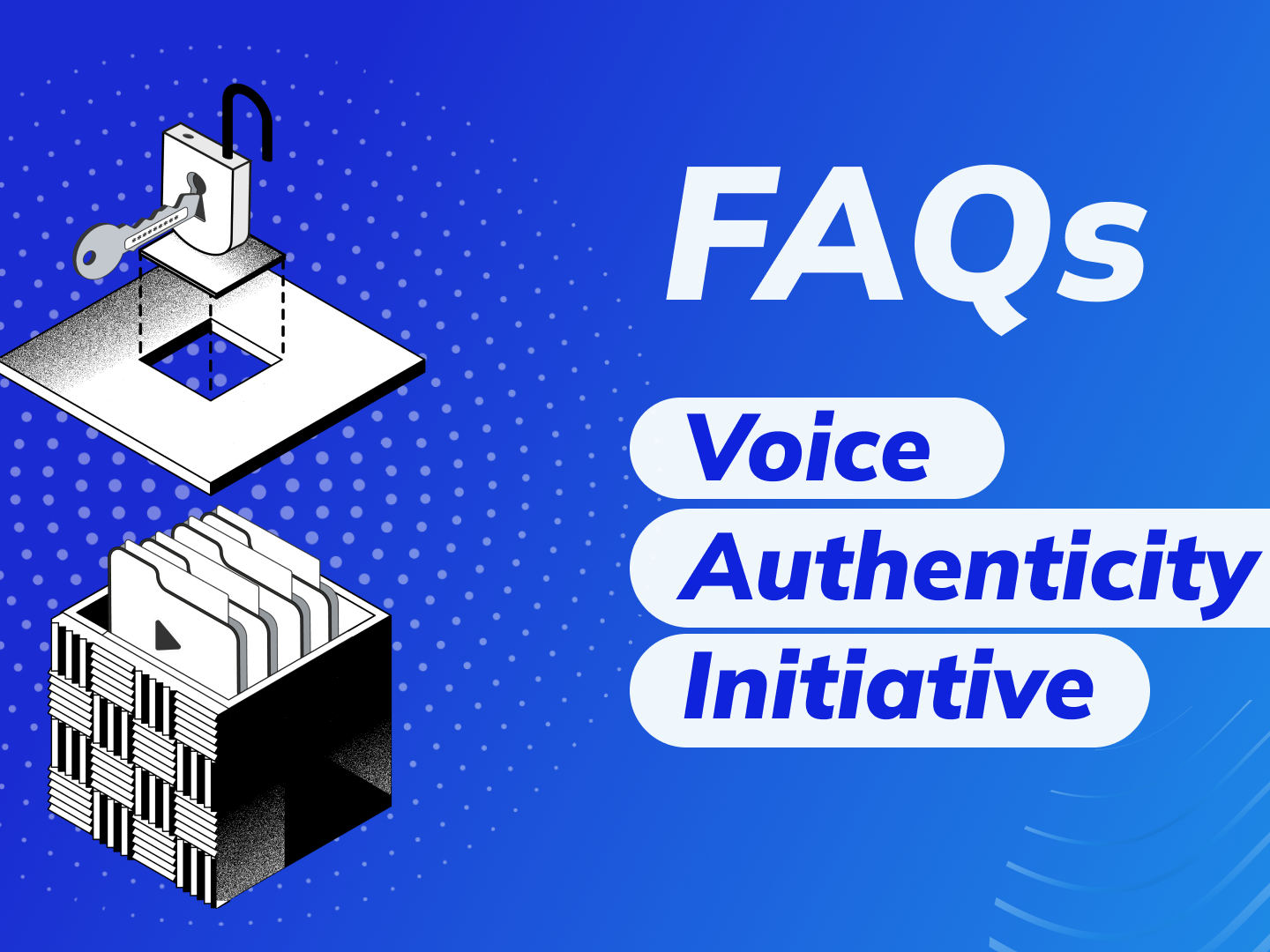
What you need to know about TTS projects on Voice123
As a voice actor, you’re well aware of how technology can impact your craft – and certainly has over time! One technological advancement that’s been making big waves in the voice acting industry more recently is Text-To-Speech (TTS). But to make informed decisions about how TTS will affect your voice over career, you must be well … informed. So, here, we’ve got the insights you need to better understand TTS, how it affects the voice over industry as well as your rates, and what to expect from (and on) Voice123.
What is TTS?
TTS is the technology that converts written text into spoken voice output, simulating human speech. For voice actors, this means that TTS voice over projects become the raw material that powers TTS systems through voice over recordings that are used to train TTS voice models.
It’s an innovative technology that transforms the written word into spoken dialogue, mechanizing the human voice. It could be likened to an automated voice actor capable of tirelessly delivering scripts without the human elements of emotion and nuance. It’s important to remember that TTS resorts under the broader concept of artificial intelligence. AI is constantly developing and ever-present in the entertainment industry as a whole. It will not only continue to exist but also evolve.
How TTS is used in voice over
The applications of TTS are varied and growing, especially as the technology becomes more integrated into the voice over industry. For example, TTS is being used in GPS navigation systems, customer service chatbots, and even digital personal assistants like Siri or Alexa. E-learning platforms, mobile applications, and interactive voice response (IVR) systems in call centers also leverage TTS technology. Your voice could be giving directions, teaching a course, or assisting a customer in an online chat. The potential reach of your work expands tremendously, crossing over into diverse sectors and industries.
Concerns about TTS
There is a concern that Text-to-Speech technology may replace voice actors as the technology has shown significant advancements in generating human-like voices, leading to worries that it could render voice actors obsolete. Additionally, some voice actors are concerned that TTS may diminish the artistic elements and nuances that they bring to their performances.
These are valid concerns, and we can certainly appreciate the level of doubt that exists among the voice acting community. However, with the right legislation, best practices, and know-how – TTS technology can become a tool that enhances and expands creative possibilities for voice actors instead of replacing them.
In fact, multiple veteran voice actors have written about their experiences using TTS in their favor, as well as their overall opinion of how the technology won’t replace voice actors and isn’t affecting the bottom line of the voice over industry. Learn more on the blogs of Debbie Grattan, Kim Handysides, and J Michael Collins, and our interview with Terri Nicole.
Since voice actors possess unique skills and talents that allow them to bring characters and narratives to life in ways that machines cannot replicate, ensuring that their role in industries such as entertainment, advertising, and gaming remains invaluable.
Potential TTS opportunities
TTS has the potential to open up a whole new market. In what way? Well, traditionally, voice actors have relied on opportunities such as audiobooks, commercials, animations, and video games. With the advancements in TTS technology, there are now opportunities for voice actors to lend their voices to TTS systems and generate income in new and innovative ways.
One such example is the field of automated customer service. Many companies are adopting conversational AI systems that utilize TTS to interact with customers. By providing a human touch to these automated systems, voice actors can bring warmth, personality, and professionalism to customer interactions. This not only enhances the user experience but also creates additional income opportunities.
Another example is e-learning. With the rise of digital learning platforms, TTS technology is being used to convert text-based content into spoken audio. Voice actors can play a helpful role in this process by providing high-quality and engaging voice overs for educational materials.
What about voice over auditions? Voice actors can also leverage this technology by using TTS to produce the desired script instead of attending physical auditions or recording every audition script. Voice actors can do this by recording their own TTS voice samples and then generating the desired script accordingly. This allows them to showcase their range, adaptability, and versatility while auditioning for multiple projects simultaneously, saving time and increasing their chances of landing voice over roles.
Charging for TTS Projects
If you’re ready to start including TTS projects in your voice over career – how does that affect your voice over rates? It’s essential to remember the broader reach and extended usage of your voice in TTS applications, which should be reflected in your pricing. Many voice actors work out a base rate for their time spent recording and then add a usage fee based on where and how the voice will be used.
Due to the evolving nature of TTS technology, exact pricing norms are currently in flux, but as more resources become available, we’ll be sure to keep you updated. In the meantime, if you choose to participate in a TTS project, be sure to consider all uses of your voice, including future use cases with your voice ‘data.’
The future of TTS on Voice123
Working with TTS technology is completely up to you! But since it’s shaping up to be a permanent feature of the industry, it’s vital for you to be aware of how the technology works. If you decide to take on TTS voice over projects, it’s also necessary to learn how your voice will be used in both the short and long term, as well as pricing and industry and copyright terminology. You’ll find helpful resources on these points from NAVA and GFTB.
We’re also working towards guaranteed data ownership for all voice actors so that your voice belongs to you and is used as you decide and approve. As with any new technology, the power of legislation and regulation is the key to sustainability.
That’s why, after reviewing our policy with the help of NAVA and our community of voice actors, we’ve developed a set of guidelines to facilitate the approval process of TTS projects.
All Voice123 projects that we identify as text-to-speech will be closely scrutinized and monitored to ensure the safety of our voice actors and that clients pay for all delivered recordings.
Moving forward, clients will:
- Need to use their corporate email accounts for added visibility and provide Voice123 with the contracts that voice actors are expected to sign.
- Answer a set of questions for each project so voice actors can make informed decisions.
- Complete payments through Voice123’s Booking and Secure payment service.
- Provide an explanation if no bookings were submitted before future projects are allowed.
- Face a ban if found attempting to bypass these rules or use auditions/samples of any voice actor without proper remuneration for its use.
In addition, projects that are in perpetuity for all cases will no longer be allowed, and we’ve also carefully reviewed our Terms of Service, particularly those relating to AI and TTS projects, which you can read here.
Going forward, if you have any doubts or concerns about any AI or TTS project posted on Voice123 – simply flag the project so that our team can investigate and improve the situation.
Don’t forget: if you have any questions about AI or TTS or need any type of guidance, reach out to our team at help@voice123.com
Share this post!
A blog owner yourself? Relevant links to quality sites will help your performance on search engines. If your readers will benefit from the services or information on The Booth's Voice over Guide, please consider linking to this post or the guide itself.


